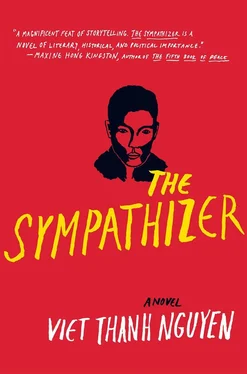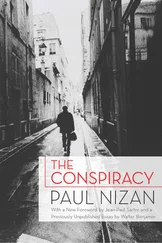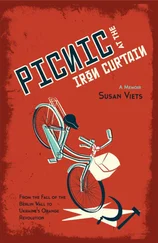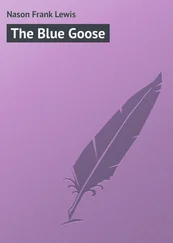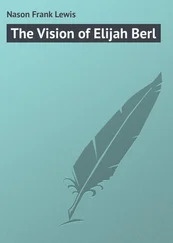In retrospect, I do not believe he meant to insult me. Like most philosophers, he simply lacked social skills. In his graceless way, he was merely stating what he and many others thought to be scientific fact. And yet, in that white room, I admit that I saw red. I could have dragged out this interrogation for years if I wanted to, asking him relentless questions that led nowhere as I tried, seemingly, to find his weakness, secretly keeping him safe. But instead all I wanted at that moment was to prove to him that I was, indeed, as smart as I thought I was, which meant smarter than him. Between the two of us, only one could be the master. The other had to be the slave.
How did I prove this to him? One night in my quarters, after my rage had cooled and hardened, it struck me that I, the bastard, understood him, the philosopher, with perfect clarity. A person’s strength was always his weakness, and vice versa. The weakness was there to be seen if one could see it. In the Watchman’s case, he was the revolutionary willing to walk away from the most important thing to a Vietnamese and a Catholic, his family, for whom the only acceptable sacrifice was for God. His strength was in his sacrifice, and that had to be destroyed. I sat down immediately at my desk and wrote the Watchman’s confession for him. He read my scenario the next morning in disbelief, then read it again before glaring at me. You’re saying that I’m saying I’m a faggot? Homosexual, I corrected. You’re going to spread filth about me? he said. Lies? I have never been a faggot. I have never dreamed of being a faggot. This — this is dirty. His voice rose and his face flushed. To have me say I joined the revolution because I loved a man? To say this was why I ran away from my family? That my faggotry explains my love for philosophy? That being a faggot is the reason for my wish to destroy society? That I betrayed the revolution so I could save the man I loved, who you have captured? No one will believe this!
Then no one will care when we publish it in the newspapers along with your lover’s confession and intimate photographs of the two of you.
You will never get me in such a photograph.
The CIA has remarkable talents with hypnosis and drugs. He fell silent. I continued: When the newspapers cover this, you realize it’s not only your revolutionary comrades who will condemn you. The road back to your family will be closed forever, too. They might accept a reformed revolutionary, or even a victorious one, but they will never accept a homosexual no matter what happens to our country. You’ll be a man who sacrificed everything for nothing. You will not even be a memory to your comrades or your family. At least if you talk to me this confession won’t be published. Your reputation will stay intact until the day the war is over. I stood up. Think about it. He said nothing and did nothing except stare at his confession. I paused at the door. Still think I’m a bastard?
No, he said tonelessly. You’re just an asshole.
Why had I done that? In my white room, I had nothing but time on my hands to ponder this event I had whitewashed from my mind, the event to which I am confessing now. The Watchman had infuriated me, pushing me into irrational action with his pseudoscientific judgment. But he would not have been able to do so if I had simply executed my role as the mole. Instead, I confess I took pleasure in doing what I was supposed to do and not supposed to do, interrogate him until he broke, as Claude had requested. He replayed the scene for me later in the surveillance room, where I watched myself watching the Watchman as he stared at his confession, knowing he was out of time, a character in a movie, as it were, that Claude had produced and I had directed. The Watchman could not represent himself; I had represented him.
Brilliant work, Claude said. You really fucked this guy.
I was a good student. I knew what my teacher wanted and, more than that, I enjoyed his praise at the expense of the bad student. For wasn’t that what the Watchman was? He had learned what the Americans taught, but he had rejected those teachings outright. I was more sympathetic to the thinking of Americans, and I confess that I could not help but see myself in their place as I broke the Watchman. He threatened them, and thus, to some extent, me. But the satisfaction I had at his expense did not last long. In the end, he would show everyone what it was that a bad student could accomplish. He would outsmart me by proving that it was possible to sabotage the means of production that you did not own, to destroy the representation that owned you. His final move happened one morning a week after I had shown him his confession, when I got a call at the officers’ quarters from the guard in the surveillance room. By the time I reached the National Interrogation Center, Claude was also there. The Watchman was curled up on his white bed, facing the white wall, clad in his white shorts and T-shirt. When we rolled him over, his face was purple and his eyes bulged. Deep in his open mouth, at the back of his throat, a white lump. I just went to the bathroom, the guard blubbered. He was eating breakfast. What was he going to do in two minutes? What the Watchman had done was choke himself to death. He had been on good behavior for the past week, and we had rewarded him with what he wanted for breakfast. I like hard-boiled eggs, he said. So he had peeled and eaten the first two before swallowing the third one whole, shell and all. Hey, good lookin’ . .
Turn off that goddamn music, Claude said to the guard.
Time had stopped for the Watchman. What I did not realize until I woke up in my own white room was that time had stopped for me, too. I could see that other white room with utter clarity from my own, my eye peering through a camera in the corner, watching Claude and myself standing over the Watchman. It’s not your fault, said Claude. Even I didn’t think about this. He patted my shoulder reassuringly but I said nothing, the smell of sulfur driving everything out of my mind except for the thought that I was not a bastard, I was not a bastard, I was not, I was not, I was not, unless, somehow, I was.
By the time I emerged from the hospital, my services were no longer needed, and I was not invited back to the set for the mopping-up operation that took place after the shooting was completed. Instead, I found that an airplane ticket had been reserved for my instant departure from the Philippines, and I spent the entire trip brooding over the problem of representation. Not to own the means of production can lead to premature death, but not to own the means of representation is also a kind of death. For if we are represented by others, might they not, one day, hose our deaths off memory’s laminated floor? Still smarting from my wounds even now, I cannot help but wonder, writing this confession, whether I own my own representation or whether you, my confessor, do.
The sight of Bon waiting for me at the Los Angeles airport made me feel a little better. He looked exactly the same, and when I opened our apartment door I was relieved to see that while it had not improved, neither had it worsened. The Frigidaire remained our decrepit diorama’s main attraction, thoughtfully stocked by Bon with enough beer to cure me of my jet lag, though not enough to cure me of the unexpected sadness massaged into my pores. I was still awake when he went to sleep, leaving me with the latest letter from my Parisian aunt. Before I retired, I dutifully composed my report to her. The Hamlet was complete, I wrote. But, more important, the Movement had established a revenue source.
A restaurant? I had said when Bon broke the news over our first round of beer.
That’s what I said. Madame’s actually a good cook.
Читать дальше
